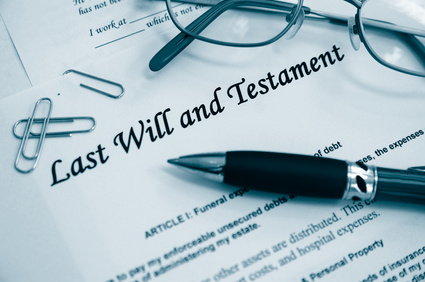Wills, Estate Planning & Probate
Where you get the knowledge of an attorney for the cost of a title company.
What is Estate Planning?
Estate Planning is the process of preparing for the distribution of your assets at your death. Some of the goals of Estate Planning are to make your wishes known to those who will manage your estate, manage or avoid the probate process, manage estate taxes, maintain control and privacy.
The process includes several tools, such as:
- Wills
- Trusts – Revocable/Living and Irrevocable
- Powers of Attorney – Dealing with both financial and healthcare decisions, including pre-need guardianship designation.
- Living Wills
What is Probate?
Probate is the Court proceeding in which a party, through their attorney, files a Will with the Court and proves the Will is valid. As a general rule, a Will must be admitted to probate before anyone can act as directed under the Will. Unless otherwise provided by Statute, a Will must be admitted to probate before a Court allows the distribution of a decedent’s property to the heirs according to its terms. If there is no Will, Florida Statutes provides an order of preference for appointment of a personal representative and for distribution of assets.
What is a Will?
One important part of estate planning is a Will. A Will is a document that describes the wishes of a person when they die. It does not come into effect until the person dies, and at that point, it must be admitted to probate. A Will typically indicates how a person would like their assets distributed, estate managed and administered and sometimes indicates special burial/cremation requests upon their death. If a person does not leave a Will, or the Will is not admitted to probate by the Court, the distribution of the estate will fall under the laws of intestate administration based upon Florida Statutes.
Because of the importance of a Will, the law requires it to have certain elements to be valid. Even if all of the elements are there, a Will may be ruled invalid if the document was, for example, the result of undue influence, fraud or mistake.
What is a Living Trust?
A trust is a generic name for any trust which comes into existence during the lifetime of the person or persons creating the trust, or can include one that is created in someone’s Will. There are many types of trust, including, but not limited to, revocable/living trust, irrevocable trust, Medicaid trust and life insurance trust. The most commonly used trust is a revocable trust, or living trust, in which the grantor/settlor (person making the trust) receives benefit(s) from the profits of the trust during their lifetime, followed by a distribution upon the death of the creator of the trust. A trust, or living trust as many people call them, should not be confused with a living will, which provides for end of life medical decisions.
What is Power of Attorney?
A Power of Attorney is a written document that allows you to appoint another person to act as an agent on your behalf. This is only valid for a specific timeframe, until you become incapacitated, meaning you lack the ability to understand or act on your own behalf, or until you die. This gives written, consenting authority for the agent to perform certain acts or functions based on the document’s specifications for either general (full) permissions or limited to special circumstances.
You can also create a Durable Power of Attorney which allows you to appoint someone to act as your agent through incapacity, which means that unless there are other circumstances that arise, the authority to act on your behalf will remain in effect until you die. The Durable Power of Attorney typically allows you to designate an agent to act for you, the same as you would be able to act on your own behalf, when it relates to financial decisions, healthcare matters and allows you to indicate your choice regarding the selection of a guardian in the event guardianship proceedings are necessary.



You can find out more details about Wills, Probate and more by reading the Probate in Florida Pamphlet provided by the Florida Bar.
You can find out more details about Trusts by reading the The Revocable Trust in Florida Pamphlet provided by the Florida Bar.
![]()
Categories
- No categories
